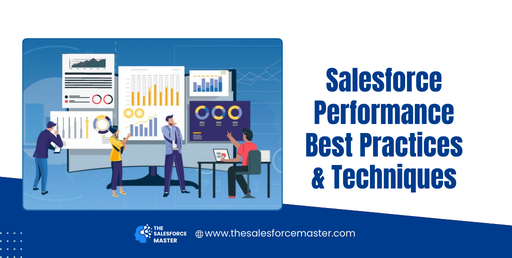
Optimizing Salesforce performance is essential for maximizing productivity and ensuring a seamless user experience.
Streamline Data Management:
Efficient data management is crucial for Salesforce performance. Keep data clean and organized to prevent system slowdowns. Regularly update and remove duplicate records. Use Salesforce Data Loader for bulk data operations, ensuring that data imports and exports are smooth. Additionally, segment your data intelligently to improve targeted marketing campaigns. This will help Salesforce marketers to focus on high-value prospects, leading to better conversion rates.
Optimize Customizations and Integrations:
Over-customization can negatively impact Salesforce performance. Limit the use of excessive custom fields, objects, and apps. Focus on essential customizations that add value to your business processes. Regularly review and refine these customizations to keep your Salesforce instance running efficiently.
When integrating third-party applications, ensure they are compatible with Salesforce. Use APIs efficiently and avoid overloading the system with too many integrations. Properly managed integrations enhance data flow and functionality, allowing Salesforce marketers to leverage a unified platform for all their marketing activities.
Implement Efficient Reporting and Dashboards:
Salesforce marketers rely heavily on reports and dashboards to track performance. Design these tools efficiently to avoid performance lags. Use report filters and dashboard components judiciously to display only the most relevant data. Schedule reports to run during off-peak hours to reduce system load during high-usage times.
Aggregate data at appropriate levels to minimize processing time. For example, use summary or matrix reports instead of detailed reports when possible. These practices ensure that Salesforce marketers have quick access to the insights they need without compromising system performance.

Leverage Salesforce Einstein and AI Tools:
Salesforce Einstein and other AI tools can greatly enhance performance by automating routine tasks and providing predictive analytics. Use Einstein for lead scoring, opportunity insights, and personalized recommendations. These tools help Salesforce marketers make data-driven decisions, improving campaign effectiveness and customer engagement.
Regular Maintenance and Updates:
Regular maintenance is vital for optimal Salesforce performance. Stay up-to-date with the latest Salesforce releases and updates. These updates often include performance enhancements and new features that can benefit your organization. Schedule regular system audits to identify and address any potential performance issues.
Additionally, training users on best practices and new features ensures that they utilize the platform effectively. Empowered users are more likely to follow guidelines that maintain system performance.
Utilize Salesforce Communities:
Salesforce Communities can help marketers engage with customers and partners more effectively. By creating a community, you provide a platform for collaboration and support, reducing the load on your internal teams. Ensure that your community is well-organized and moderated to maintain a high level of engagement and satisfaction.
Conclusion:
In conclusion, optimizing Salesforce performance requires a combination of strategic planning, regular maintenance, and leveraging advanced tools. By following these best practices, Salesforce marketers can ensure a robust, efficient, and effective CRM system that supports their marketing goals. Implement these techniques to maximize your Salesforce investment and drive better business outcomes.


